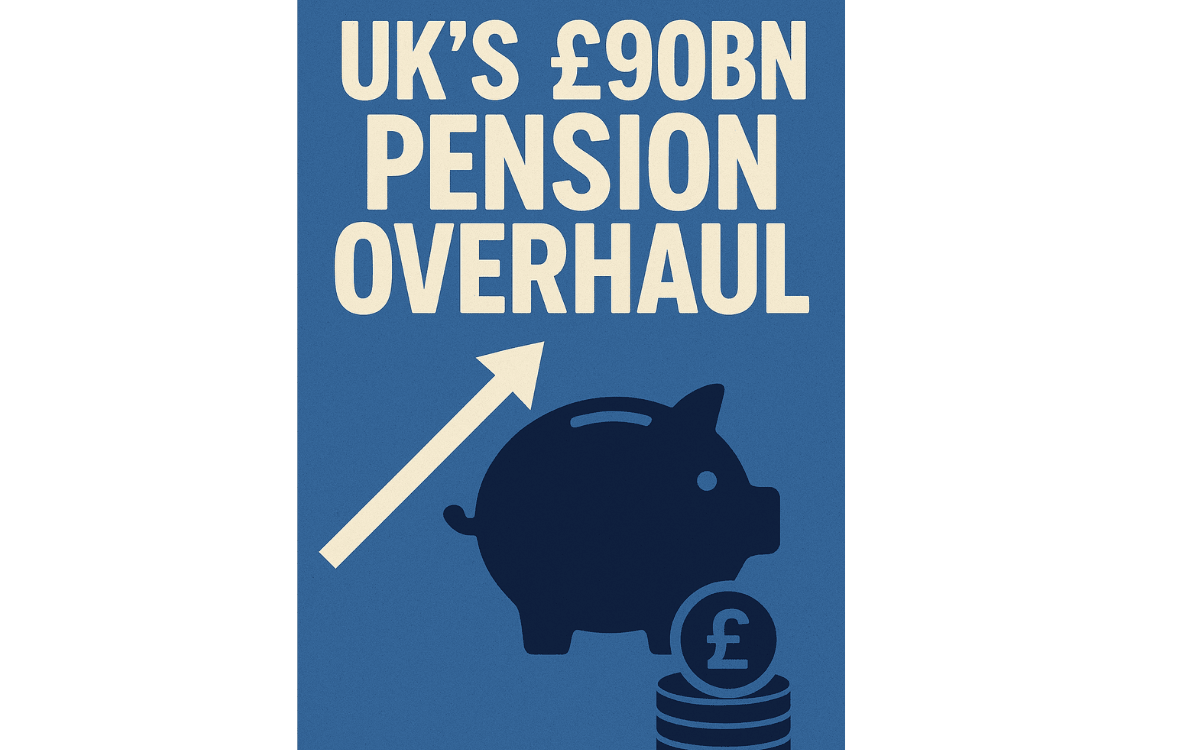The UK is witnessing one of the most significant pension reforms in recent years as the government moves to overhaul its £90 billion public pension fund structure. Experts say this shake-up could influence not just retirees, but the broader economy and investment landscape for years to come.
What’s changing?
Under the new plan, the government will consolidate multiple smaller pension schemes into larger funds with greater bargaining power and longer investment horizons. The aim: reduce fees, expand asset classes, and improve long-term returns. This follows growing concern that smaller pension schemes were ill-equipped to deal with low yields, rising costs and an uncertain global market.
Why it matters
For many pension holders, the change could mean both better returns and more resilience. Larger funds typically have access to top-tier institutional asset managers, the ability to negotiate lower fees, and can diversify into alternative assets such as infrastructure, private equity and real estate. Analysts caution, however, that bigger does not always mean better — governance, transparency and risk management will be vital.
Implications for workers, retirees & the economy
- For workers: The consolidation may initially cause some disruption—members could see changes in how their funds are administered, what investment options are offered, and potentially lower costs.
- For retirees: Over time the hope is higher pension payouts or at least a more secure fund underpinning. With global markets volatile, pensions that are more active and diversified stand a better chance of preserving value.
- For the economy: A more robust pension fund system could mean greater institutional investment into UK infrastructure, housing and other long-term projects—potentially a boost to growth. But there are risks: if bigger funds chase illiquid investments or take on excessive risk, problems could ripple through the financial system.
Headwinds & watchpoints
While the overhaul presents opportunity, several challenges loom:
- Will the new larger funds maintain strong governance and not fall prey to complexity or inflated fees?
- How quickly can they adapt to rapidly shifting global markets and rising inflation?
- There’s also the question of regulatory oversight: bigger funds might wield more influence, and with that comes responsibility.
If any of these areas fail, the anticipated benefits may not materialize.
If you have pension holdings, or simply care about macro-trends influencing savings and retirement, this reform is worth noting. It’s not just about better pension returns—it’s about how institutional money and investment are structured, and how that spills into everyday finance, housing, infrastructure and jobs.
Final takeaway
The UK’s pension system reform is a high-stakes play. It aims for stronger, smarter pension funds with more clout and better returns. The payoff could be substantial for retirees and the economy—but only if execution is solid, markets cooperate, and governance stays sharp. The next decade may well show how big-fund consolidation shapes the financial future.
